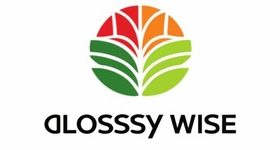Known for its booming real estate and luxury lifestyle, Dubai remains a trendy investment spot. One thing that probably attracts foreign investors into Dubai is the ability to purchase any real estate of their choice in specified areas in Dubai. Can foreigners buy property in Dubai at all? What is the law, and what are the regulations or restrictions they face? Let’s find out.
Ownership of Property in Dubai by Foreigners
Ownership of property by foreigners is allowed in Dubai. This is permitted in freehold areas, which are specific zones where non-citizens can enjoy full ownership rights, meaning they can own property directly. Areas can be developed by private developers who, in turn, will market them to all.
Key Freehold Areas in Dubai
1. Palm Jumeirah: It is one of the very few developments in Dubai that are truly iconic. Not only has it been graced with fabulous waterfront living, but its graceful residential properties also comprise excellent villas, apartments, and townhouses.
2. Dubai Marina: Having a breathtaking waterside view and rich modish skyscrapers, Dubai Marina is a most sought-after property hub not only amongst the investors but also the occupiers. It caters to a blend of both residential and commercial real estate properties that include apartments and office spaces.
3. Downtown Dubai: This place has iconic stature with the Burj Khalifa and is one of the most liveliest districts in Dubai-developed with a fine blend of residential, commercial, and retail properties. It is one place that quickly invokes class amidst all the luxuriously developed apartments, high-end shopping, and fine dining facilities.
4. Jumeirah Lakes Towers: This is one of Dubai’s mixed-use developments with a long list of properties ranging from residential to commercial. The waterfront of JLT is trendy either for living experience or community spirit.
Regulations and Restrictions
Although foreigners can own property in freehold areas in Dubai, there are specific regulations and restrictions they have to bear in mind:
1. Property Registration: The selected property has to be registered with the Dubai Land Department by the foreign buyer. In this process, a registration fee has to be obtained, and the required documentation, such as proof of identity and residency status, needs to be provided.
2. Visa Requirements: Though obtaining a residency visa is compulsory for specific foreign buyers to purchase Dubai property, this is not necessarily true in other instances, all resulting in the property and its developer.
3. Mortgage Restrictions: There is a possibility that foreign buyers might come across restrictions in terms of obtaining a mortgage in Dubai. Some banks may ask for a higher down payment or might have stricter eligibility criteria for foreign investors.
4. Ownership Limitations: It may be noted that even in freehold areas, the amount of land available for ownership by foreigners is restricted to a maximum of 49% of the total area in a development. 51% of the developed land has to belong to UAE nationals.
Benefits of Buying Property in Dubai
1. Investment Potential: The real estate sector of Dubai has been very sustaining and, at the same time, developing into an investment potential for foreign investors.
2. Tax-Free Income: Rental income earned from property in Dubai is tax-free, making this option exceptionally attractive for investors looking at generating income through an investment.
3. Quality of Life: Dubai offers a good quality of life with some of the best amenities, varieties of entertainment options, and infrastructure, which is so appealing to investors as well as two-way residents.
CONCLUSIONBriefly, non-nationals can own real estate in Dubai, but this is in freehold areas, and full ownership privileges are allowed to foreign owners. Yet, there are specific regulations and restrictions to inform them about, like registering the property and getting a visa, and so on. But despite these issues, the pluss of buying real estate in Dubai are many: the investment potential, tax-free income, high standard of life, etc.

